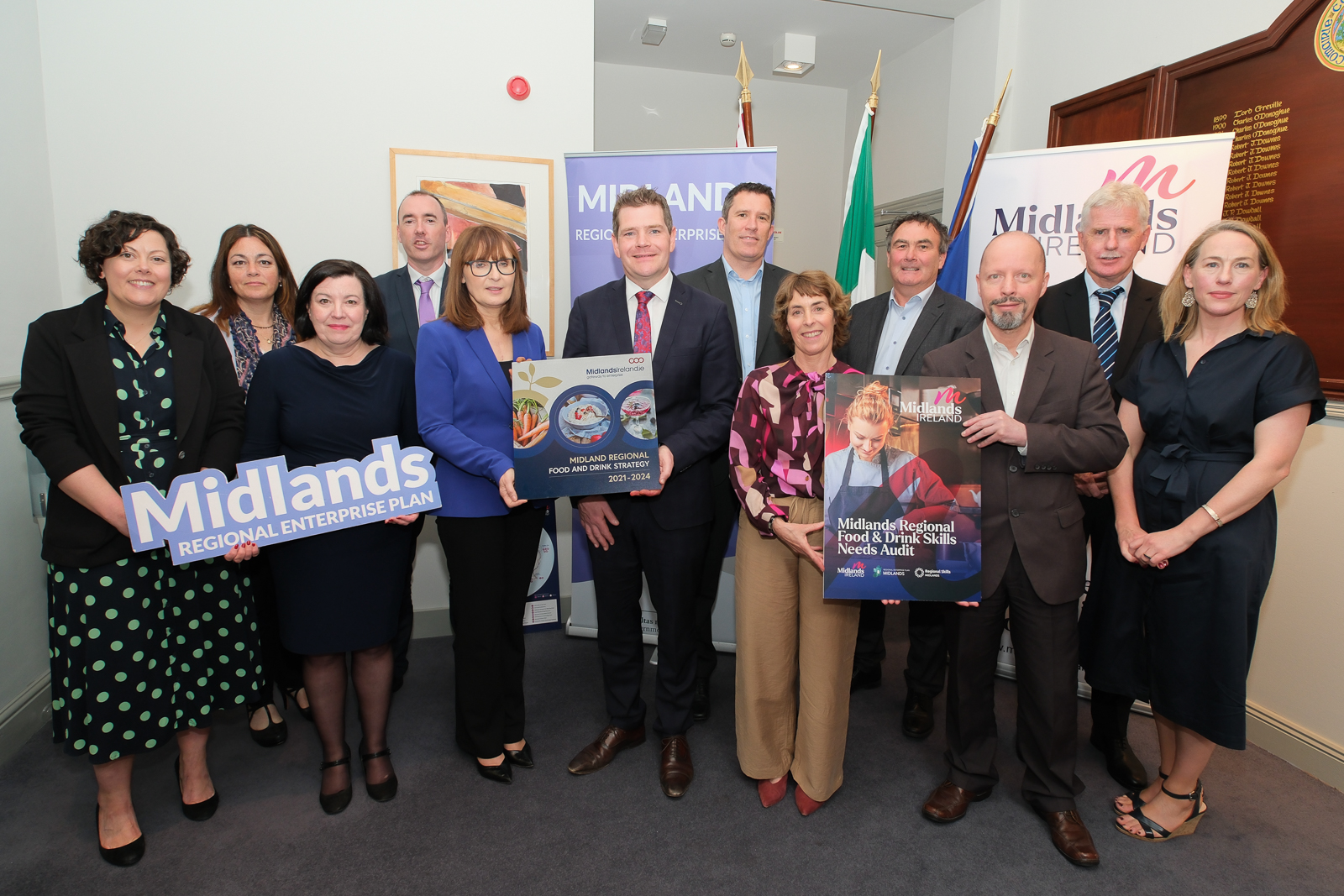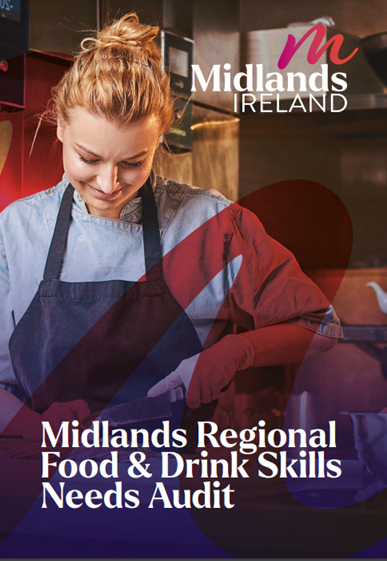The recently completed Food and Drink Skills Audit, conducted by the Technological University of the Shannon (TUS) in collaboration with the Midlands Regional Enterprise Plan (MREP), has unveiled significant insights and recommendations aimed at bolstering the Irish food and drink industry both regionally and nationally.
This comprehensive report, which includes international case studies through TUS’s participation in the RUN EU University network, along with reviews of national and regional policies from agencies such as Teagasc and Fáilte Ireland, highlights the critical skills needed, challenges faced, and strategic actions required to enhance the sector’s sustainability, competitiveness, and growth.

Key Findings
Key findings from the report include the following:
- Recruitment and Talent Retention: Companies face significant challenges in recruiting staff with the necessary skills in food safety, sales, management, and technical expertise. Strategies to address these gaps include training programs, partnerships with educational institutions, and enhanced promotion of the indigenous food and drink sector as a fulfilling career path over other competing industries.
- Challenges in Education and Training: The qualitative research reiterates the importance of maintaining food and drink-related courses despite fluctuating student demand. It also highlights the necessity of attracting skilled educators to these programs to address shortages in areas like home economics.
- Sustainability and Innovation: Sustainability emerged as a critical focus for SMEs, with businesses actively implementing eco-friendly practices. However, challenges such as high costs and the need for supportive measures in materials sourcing and renewable energy were noted.
- Collaboration and Support: There is a strong willingness among companies to collaborate with other SMEs, educational institutions, and industry bodies. Such collaborations aim to address common challenges through knowledge sharing, joint marketing efforts, and shared resources.
- Diverse Skill Requirements: The audit identifies ten essential skills areas for future growth, including data analysis, digital literacy, food safety, nutrition, regulatory knowledge, soft skills, supply chain management, sustainability, technical robotics, and scientific knowledge. These reflect the multifaceted nature of the food and drink industry, emphasising the need for a broad and advanced skill set.
Dr Anthony Johnston, Director of Research Development at TUS, states: “We had excellent participation from SMEs and stakeholders across the region, demonstrating their passion for the food and drink industry. There’s a clear desire to succeed in business while benefiting the region through sustainable job creation.
“We need to continue to invest in education relating to the food and drink industry, including at both craft and management level. This industry intersects with many disciplines, including food science, culinary arts, business management, marketing, and tourism, among others, and it’s important to focus on its continued development as these sectors will offer young people in the region many opportunities for employment and professional development.’
Key Recommendations
To address these findings, the report outlines eight key recommendations:
- Establish a learning journey for stakeholders to visit successful food regions abroad.
- Create a centralised website promoting all food-related courses in the region.
- Invest in food tourism pride through continuous workshops and training events.
- Develop additional markets and events in the region.
- Offer training courses on food visitor attraction development.
- Implement a short-advanced program on the Future of Food in Regional Europe.
- Fund a post-graduate research student to support policy development.
- Retain existing food and drink-related skills programs during low demand cycles.
Dr Anne Cusack, Chair of the Midlands Regional Enterprise Plan Steering Committee, adds: “This initiative is a crucial part of our regional food and drink strategy, which aims to promote indigenous consumption, exports, and visitor engagement through education, marketing, business supports, and continuous improvement, with a strong focus on sustainability.
“The Midlands is home to some of the finest food and drink producers in the country with a wide selection of award-winning products from across the region so it’s more important than ever that we support this industry so that it can continue to thrive.”
The full Midlands Food and Drink Skills Audit can be viewed here.




